Being on the outside as your partner or loved one goes through cancer can be extremely difficult. During active treatment, the guidelines for how to can to be supportive are a little more clear, but what about when treatment ends?
While many people think this is the finish line, the end of treatment can actually be the beginning of the depression, anxiety, and many other emotional & physical challenges. The messages and support efforts die off from family and friends, leaving the patient feeling alone and forgotten.
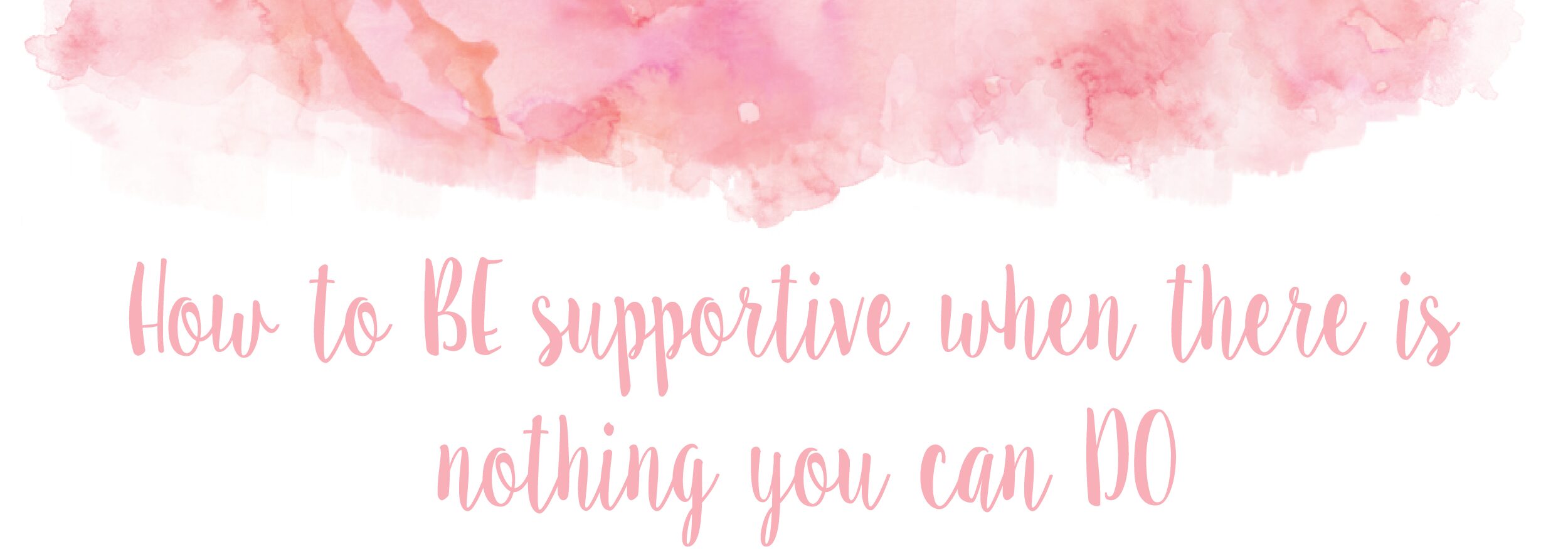
Today, I am interviewing my husband on how to be supportive when there is nothing you can DO. This area can be particularly difficult for men and I hope you find his insight helpful.
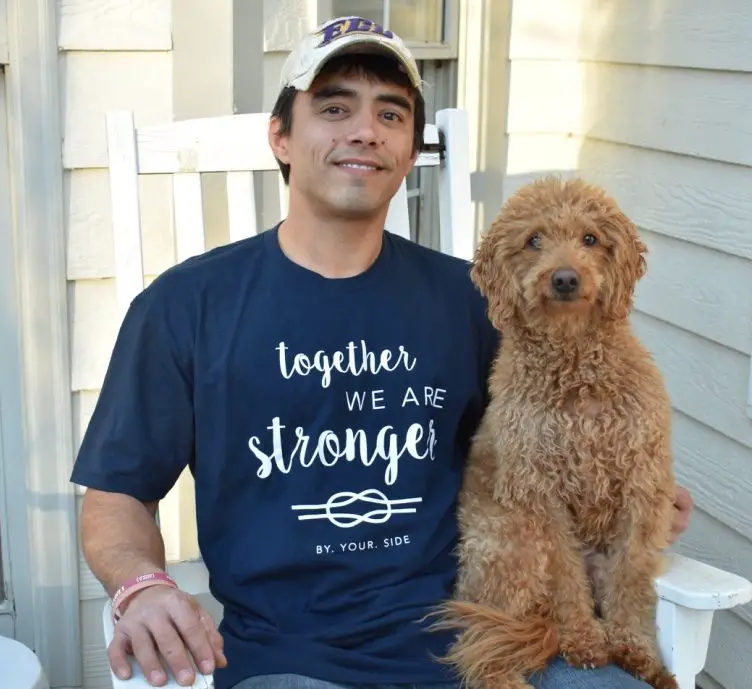
How did things change at the end of treatment?
There was more confusion about what our goal was. We reached the chemotherapy milestone and we didn’t know what to expect next. I saw her anxiety and depression come to a head as she grappled with the “now what” feelings. It made me feel like there was nothing I could do to help.
How did you determine what Anna needed?
I asked her directly what she needed. Based on the way we have built our relationship over the years, I trusted that she would be direct and honest with me about her needs. When she said one thing, I didn’t worry that it meant something else. We also had a running list of ways that I could be emotionally supportive. As time went on, we added to the list and continued a dialogue on the topic. It was also important to identify what things were not helpful to her.
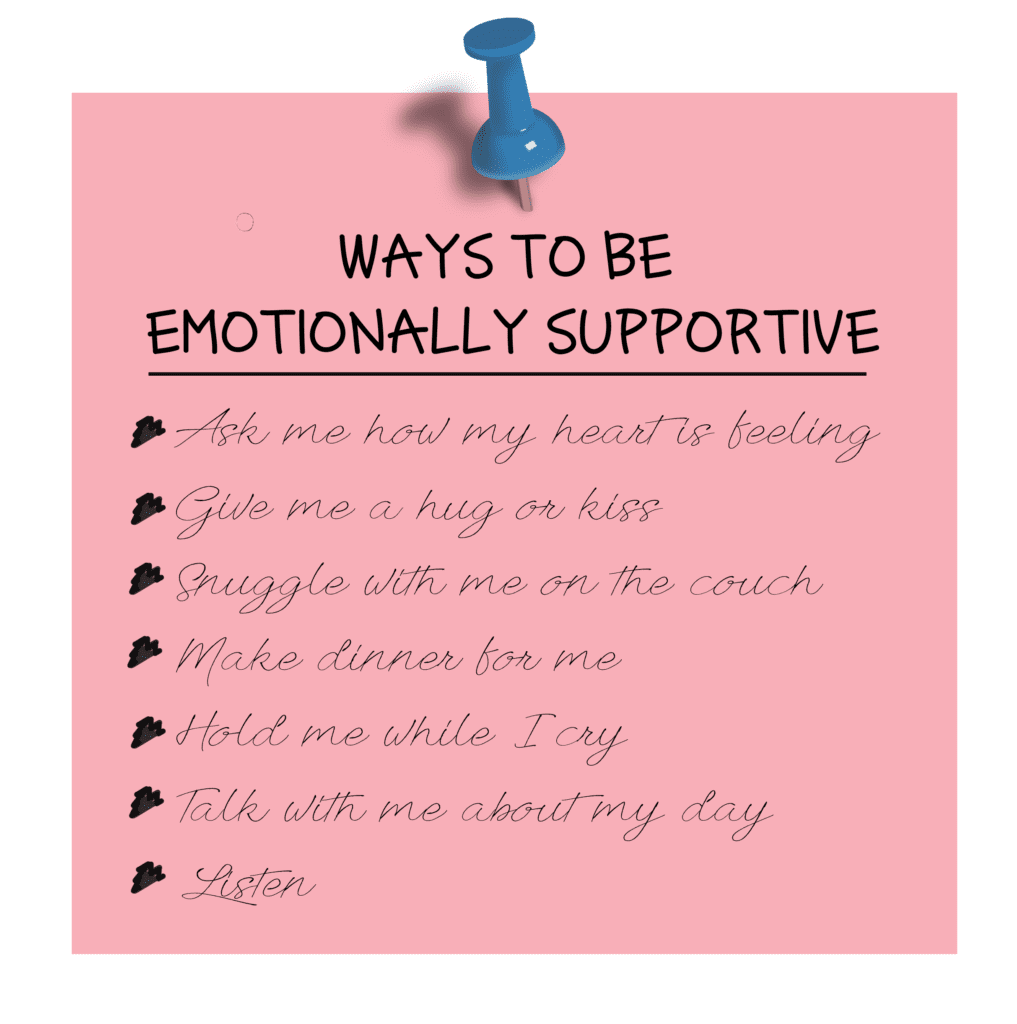
When trying to be supportive, what worked well?
I tried to change my perspective from focusing on always fixing things to how I could BE supportive without doing. For example when Anna was sad or crying, I would stop and ask her “Do you want me to do something or just listen”. This was one of the hardest things for me. I constantly thought of things that I could do to try and fix the situation. Using this language helped us eliminate ambiguity around what I should do and kept me from adding more stress to the situation. Because of this communication, I was able to give Anna the exact emotional support she needed.
Focus on being supportive instead of doing supportive
It was also helpful to find ways to give her privacy. Being in treatment and going through surgery her body was constantly being examined, poked and proded. I always offered to step out at doctor’s appointments in case there were questions she had that she would be more comfortable asking in private. She never took me up on this, but she and the doctors were immensely grateful for the thoughtful gesture.
What didn’t work well?
It wasn’t helpful when I tried to minimize a situation or concern that Anna was upset about. I would try to simplify the situation/problem to help her, but that ended up making her feel dismissed or disregarded. Sometimes I would forget that just because something wasn’t a significant problem to me didn’t mean it wasn’t significant to her.
What advice would you give other caregivers for how to be supportive?
Don’t try to influence her decisions based on what you think is best. It is important to let her know that you are there to be supportive, but the decisions about her body are hers alone to make. You don’t get to tell her what to do with her body. Be a source of information, support, and a listening ear. Anna felt a loss of control and sometimes the only way she could get that back was to make her own choices.
Prioritize what must be important today over what can be important tomorrow
When active treatment ends, it is particularly important to remember that it’s OK her for to be sad even when the reason may not be obvious. Remember that the root of the sadness may be unknown to her at the time, but she always has a right to her feelings. Don’t tell her she should feel a certain way or move on from an emotion in a certain timeframe. Share your feelings with her, it’s important that she knows she is not the only one that is afraid. You are there to support her. She is not there to make you feel more comfortable/feel better.
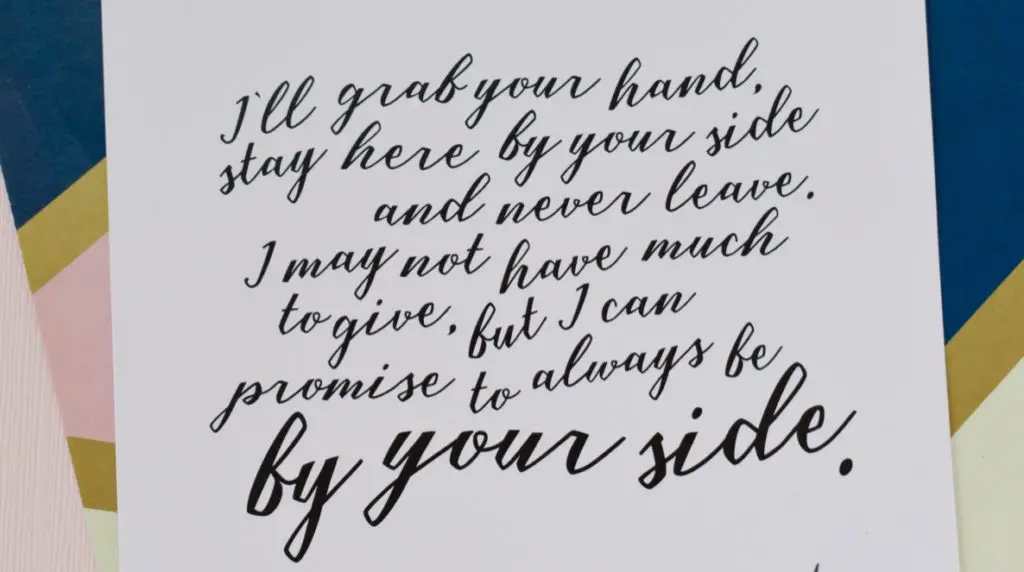
What advice would you give friends & family on how to be supportive?
During active treatment meals, cards, cleaning and text messages (that didn’t need a response) were particularly helpful. Instead of saying “is there anything I can do”, ask “if _____ would be helpful”. Ex. “Would it be helpful if I bring dinner tomorrow.” Do NOT google and send unsolicited advice.
After active treatment, remember that cancer is not over. Your friend and loved one will face even more intense emotions than ever before. Life after cancer can be scary and there is no roadmap for the future. With all of this in mind, try not to dance around the issue of cancer. It’s OK to talk about cancer and can actually be therapeutic for her to do so. Having you ask about her feelings after treatment is important to show her that you understand life didn’t go back to “normal”.
Moving Forward
Accept that everything might not be fine for her and let her know it’s OK to talk to you about the uncomfortable and scary topics. Acknowledge the pink elephant in the room but don’t feel like you have to DO something. Just be there and be available to listen. She may want to share with you and will want to know you won’t dismiss her fears with comments like “at least your alive”, “you’ll be fine” or “don’t worry”. If she doesn’t want to share, that’s OK too. Follow her lead or just ask her, “how can I be supportive right now”.

This post is brought to you by By Your Side. This survivor run business gives you the gifts to support, unite, and spread hope and encouragement. By Your Side is a collection of jewelry and gifts inspired from ropes and knots, symbolizing strength and support, and uniting our community of friends. We are a company centered around the mission of showing up in tangible ways for the people in our lives.
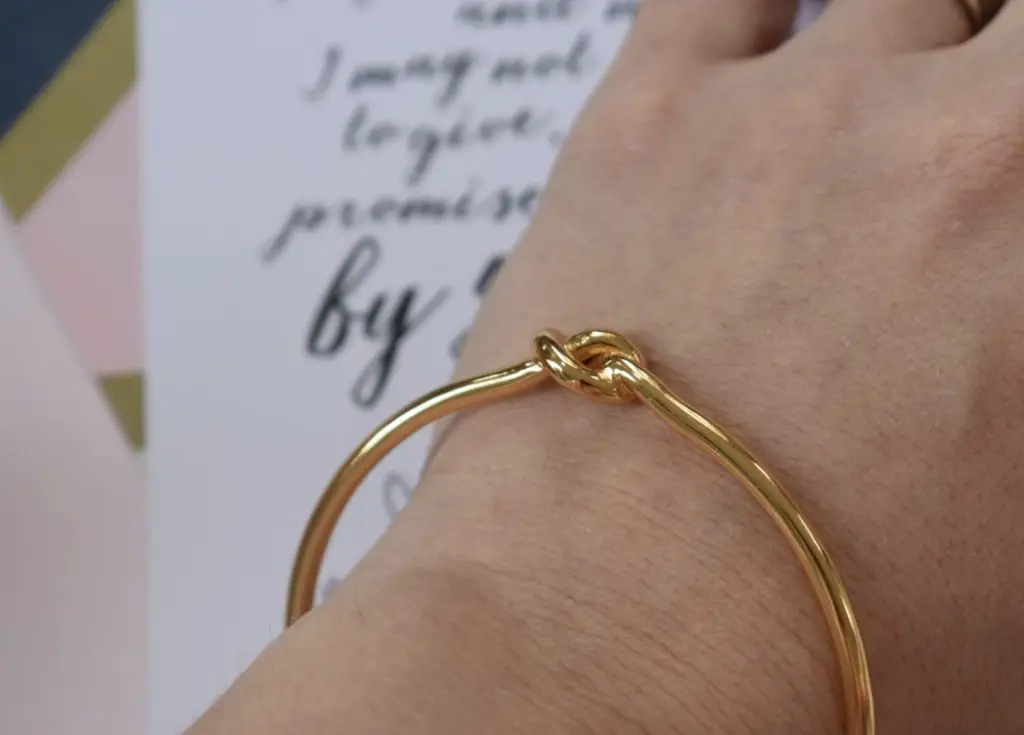
By Your Side knot and rope pieces are named after encouraging words. We believe so strongly that the words we say to ourselves and the words we speak to our friends, family, loved ones, even that stranger on the street matter.
Brave. Strength. Courageous. Love. Hope. Grace. Dream.
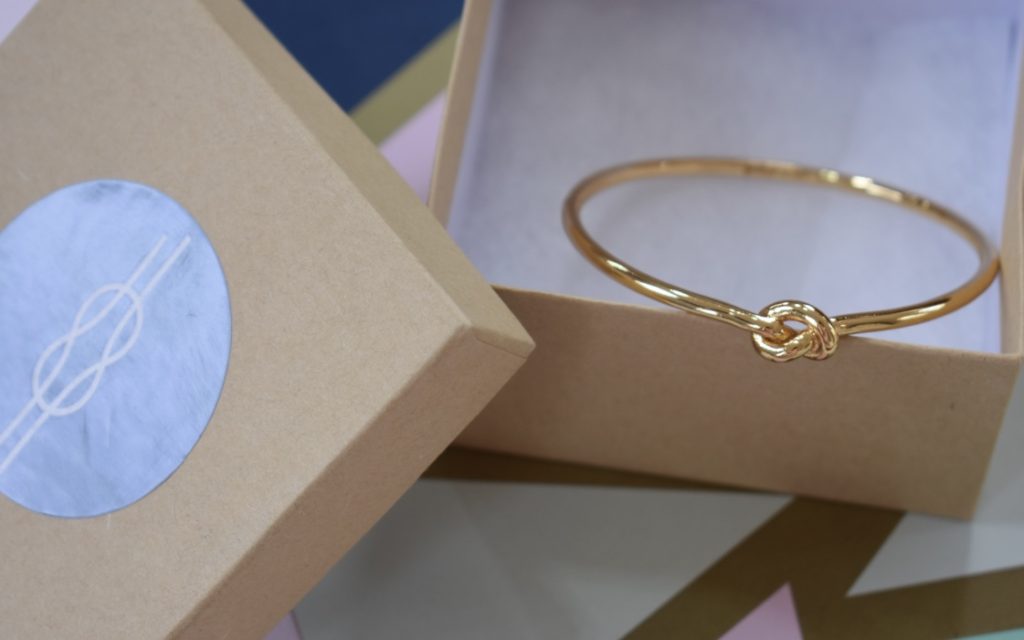
By Your Side shows up when you can’t be there. The jewelry is the ultimate daily reminder that we are never alone. Every time you wear a By Your Side piece, it’s a reminder that each step of our life journey someone is always with us.
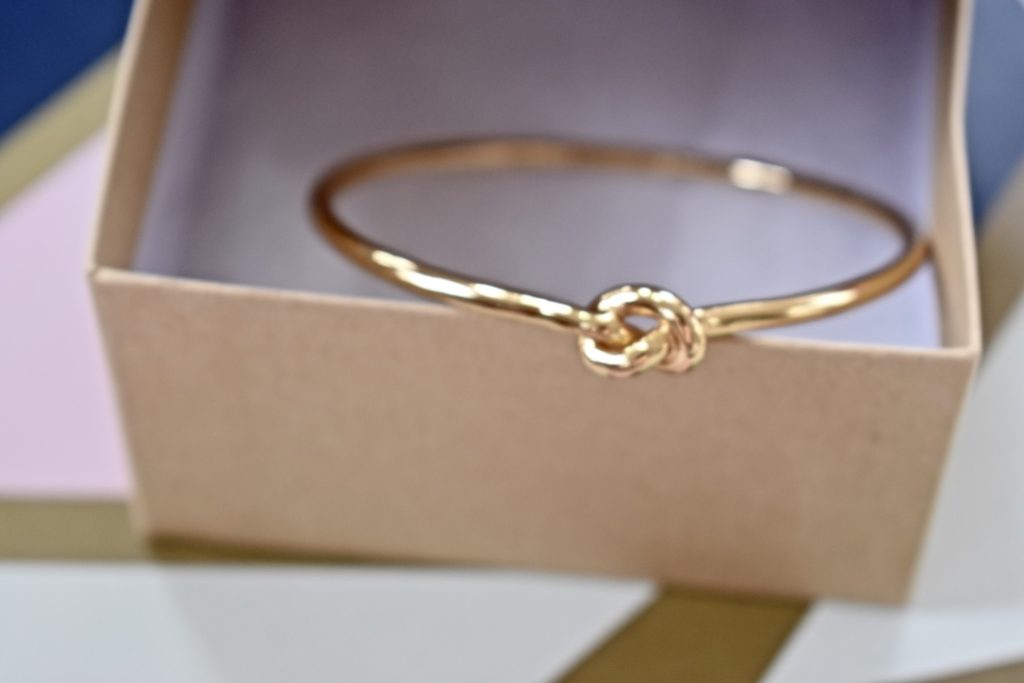
Enter the giveaway below to win the stunning By Your Side “Brave” gold bangle.
[promosimple id=”c9c3″]

23 Comments